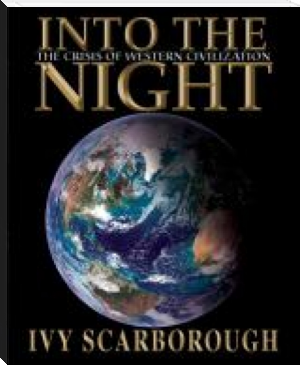The Prince - Niccolò Machiavelli (the beginning after the end novel read .TXT) 📗

- Author: Niccolò Machiavelli
Book online «The Prince - Niccolò Machiavelli (the beginning after the end novel read .TXT) 📗». Author Niccolò Machiavelli
opposite to the city runs a little river which bathes that part of the walls looking towards Fano, facing the high road. Thus he who draws near to Sinigalia comes for a good space by road along the mountains, and reaches the river which passes by Sinigalia. If he turns to his left hand along the bank of it, and goes for the distance of a bow-shot, he arrives at a bridge which crosses the river; he is then almost abreast of the gate that leads into Sinigalia, not by a straight line, but transversely. Before this gate there stands a collection of houses with a square to which the bank of the river forms one side.
The Vitelli and Orsini having received orders to wait for the duke, and to honour him in person, sent away their men to several castles distant from Sinigalia about six miles, so that room could be made for the men of the duke; and they left in Sinigalia only Oliverotto and his band, which consisted of one thousand infantry and one hundred and fifty horsemen, who were quartered in the suburb mentioned above. Matters having been thus arranged, the Duke Valentino left for Sinigalia, and when the leaders of the cavalry reached the bridge they did not pass over, but having opened it, one portion wheeled towards the river and the other towards the country, and a way was left in the middle through which the infantry passed, without stopping, into the town.
Vitellozzo, Pagolo, and the Duke di Gravina on mules, accompanied by a few horsemen, went towards the duke; Vitellozo, unarmed and wearing a cape lined with green, appeared very dejected, as if conscious of his approaching death--a circumstance which, in view of the ability of the man and his former fortune, caused some amazement. And it is said that when he parted from his men before setting out for Sinigalia to meet the duke he acted as if it were his last parting from them. He recommended his house and its fortunes to his captains, and advised his nephews that it was not the fortune of their house, but the virtues of their fathers that should be kept in mind. These three, therefore, came before the duke and saluted him respectfully, and were received by him with goodwill; they were at once placed between those who were commissioned to look after them.
But the duke noticing that Oliverotto, who had remained with his band in Sinigalia, was missing--for Oliverotto was waiting in the square before his quarters near the river, keeping his men in order and drilling them--signalled with his eye to Don Michelle, to whom the care of Oliverotto had been committed, that he should take measures that Oliverotto should not escape. Therefore Don Michele rode off and joined Oliverotto, telling him that it was not right to keep his men out of their quarters, because these might be taken up by the men of the duke; and he advised him to send them at once to their quarters and to come himself to meet the duke. And Oliverotto, having taken this advice, came before the duke, who, when he saw him, called to him; and Oliverotto, having made his obeisance, joined the others.
So the whole party entered Sinigalia, dismounted at the duke's quarters, and went with him into a secret chamber, where the duke made them prisoners; he then mounted on horseback, and issued orders that the men of Oliverotto and the Orsini should be stripped of their arms. Those of Oliverotto, being at hand, were quickly settled, but those of the Orsini and Vitelli, being at a distance, and having a presentiment of the destruction of their masters, had time to prepare themselves, and bearing in mind the valour and discipline of the Orsinian and Vitellian houses, they stood together against the hostile forces of the country and saved themselves.
But the duke's soldiers, not being content with having pillaged the men of Oliverotto, began to sack Sinigalia, and if the duke had not repressed this outrage by killing some of them they would have completely sacked it. Night having come and the tumult being silenced, the duke prepared to kill Vitellozzo and Oliverotto; he led them into a room and caused them to be strangled. Neither of them used words in keeping with their past lives: Vitellozzo prayed that he might ask of the pope full pardon for his sins; Oliverotto cringed and laid the blame for all injuries against the duke on Vitellozzo. Pagolo and the Duke di Gravina Orsini were kept alive until the duke heard from Rome that the pope had taken the Cardinal Orsino, the Archbishop of Florence, and Messer Jacopo da Santa Croce. After which news, on 18th January 1502, in the castle of Pieve, they also were strangled in the same way.
THE LIFE OF CASTRUCCIO CASTRACANI OF LUCCA
WRITTEN BY NICOLO MACHIAVELLI
And sent to his friends ZANOBI BUONDELMONTI And LUIGI ALAMANNI
CASTRUCCIO CASTRACANI 1284-1328
It appears, dearest Zanobi and Luigi, a wonderful thing to those who have considered the matter, that all men, or the larger number of them, who have performed great deeds in the world, and excelled all others in their day, have had their birth and beginning in baseness and obscurity; or have been aggrieved by Fortune in some outrageous way. They have either been exposed to the mercy of wild beasts, or they have had so mean a parentage that in shame they have given themselves out to be sons of Jove or of some other deity. It would be wearisome to relate who these persons may have been because they are well known to everybody, and, as such tales would not be particularly edifying to those who read them, they are omitted. I believe that these lowly beginnings of great men occur because Fortune is desirous of showing to the world that such men owe much to her and little to wisdom, because she begins to show her hand when wisdom can really take no part in their career: thus all success must be attributed to her. Castruccio Castracani of Lucca was one of those men who did great deeds, if he is measured by the times in which he lived and the city in which he was born; but, like many others, he was neither fortunate nor distinguished in his birth, as the course of this history will show. It appeared to be desirable to recall his memory, because I have discerned in him such indications of valour and fortune as should make him a great exemplar to men. I think also that I ought to call your attention to his actions, because you of all men I know delight most in noble deeds.
The family of Castracani was formerly numbered among the noble families of Lucca, but in the days of which I speak it had somewhat fallen in estate, as so often happens in this world. To this family was born a son Antonio, who became a priest of the order of San Michele of Lucca, and for this reason was honoured with the title of Messer Antonio. He had an only sister, who had been married to Buonaccorso Cenami, but Buonaccorso dying she became a widow, and not wishing to marry again went to live with her brother. Messer Antonio had a vineyard behind the house where he resided, and as it was bounded on all sides by gardens, any person could have access to it without difficulty. One morning, shortly after sunrise, Madonna Dianora, as the sister of Messer Antonio was called, had occasion to go into the vineyard as usual to gather herbs for seasoning the dinner, and hearing a slight rustling among the leaves of a vine she turned her eyes in that direction, and heard something resembling the cry of an infant. Whereupon she went towards it, and saw the hands and face of a baby who was lying enveloped in the leaves and who seemed to be crying for its mother. Partly wondering and partly fearing, yet full of compassion, she lifted it up and carried it to the house, where she washed it and clothed it with clean linen as is customary, and showed it to Messer Antonio when he returned home. When he heard what had happened and saw the child he was not less surprised or compassionate than his sister. They discussed between themselves what should be done, and seeing that he was priest and that she had no children, they finally determined to bring it up. They had a nurse for it, and it was reared and loved as if it were their own child. They baptized it, and gave it the name of Castruccio after their father. As the years passed Castruccio grew very handsome, and gave evidence of wit and discretion, and learnt with a quickness beyond his years those lessons which Messer Antonio imparted to him. Messer Antonio intended to make a priest of him, and in time would have inducted him into his canonry and other benefices, and all his instruction was given with this object; but Antonio discovered that the character of Castruccio was quite unfitted for the priesthood. As soon as Castruccio reached the age of fourteen he began to take less notice of the chiding of Messer Antonio and Madonna Dianora and no longer to fear them; he left off reading ecclesiastical books, and turned to playing with arms, delighting in nothing so much as in learning their uses, and in running, leaping, and wrestling with other boys. In all exercises he far excelled his companions in courage and bodily strength, and if at any time he did turn to books, only those pleased him which told of wars and the mighty deeds of men. Messer Antonio beheld all this with vexation and sorrow.
There lived in the city of Lucca a gentleman of the Guinigi family, named Messer Francesco, whose profession was arms and who in riches, bodily strength, and valour excelled all other men in Lucca. He had often fought under the command of the Visconti of Milan, and as a Ghibelline was the valued leader of that party in Lucca. This gentleman resided in Lucca and was accustomed to assemble with others most mornings and evenings under the balcony of the Podesta, which is at the top of the square of San Michele, the finest square in Lucca, and he had often seen Castruccio taking part with other children of the street in those games of which I have spoken. Noticing that Castruccio far excelled the other boys, and that he appeared to exercise a royal authority over them, and that they loved and obeyed him, Messer Francesco became greatly desirous of learning who he was. Being informed of the circumstances of the bringing up of Castruccio he felt a greater desire to have him near to him. Therefore he called him one day and asked him whether he would more willingly live in the house of a gentleman, where he would learn to ride horses and use arms, or in the house of a priest, where he would learn nothing but masses and the services of the Church. Messer Francesco could see that it pleased Castruccio greatly to hear horses and arms spoken of, even though he stood silent, blushing modestly; but being encouraged by Messer Francesco to speak, he answered that, if his master were agreeable, nothing would please him more than to give up his priestly studies and take up those of a soldier. This reply delighted Messer Francesco, and in a very short time he obtained the consent of Messer Antonio, who was driven to yield by his knowledge of the nature of the lad, and the fear that he would not be able to hold him much longer.
Thus
The Vitelli and Orsini having received orders to wait for the duke, and to honour him in person, sent away their men to several castles distant from Sinigalia about six miles, so that room could be made for the men of the duke; and they left in Sinigalia only Oliverotto and his band, which consisted of one thousand infantry and one hundred and fifty horsemen, who were quartered in the suburb mentioned above. Matters having been thus arranged, the Duke Valentino left for Sinigalia, and when the leaders of the cavalry reached the bridge they did not pass over, but having opened it, one portion wheeled towards the river and the other towards the country, and a way was left in the middle through which the infantry passed, without stopping, into the town.
Vitellozzo, Pagolo, and the Duke di Gravina on mules, accompanied by a few horsemen, went towards the duke; Vitellozo, unarmed and wearing a cape lined with green, appeared very dejected, as if conscious of his approaching death--a circumstance which, in view of the ability of the man and his former fortune, caused some amazement. And it is said that when he parted from his men before setting out for Sinigalia to meet the duke he acted as if it were his last parting from them. He recommended his house and its fortunes to his captains, and advised his nephews that it was not the fortune of their house, but the virtues of their fathers that should be kept in mind. These three, therefore, came before the duke and saluted him respectfully, and were received by him with goodwill; they were at once placed between those who were commissioned to look after them.
But the duke noticing that Oliverotto, who had remained with his band in Sinigalia, was missing--for Oliverotto was waiting in the square before his quarters near the river, keeping his men in order and drilling them--signalled with his eye to Don Michelle, to whom the care of Oliverotto had been committed, that he should take measures that Oliverotto should not escape. Therefore Don Michele rode off and joined Oliverotto, telling him that it was not right to keep his men out of their quarters, because these might be taken up by the men of the duke; and he advised him to send them at once to their quarters and to come himself to meet the duke. And Oliverotto, having taken this advice, came before the duke, who, when he saw him, called to him; and Oliverotto, having made his obeisance, joined the others.
So the whole party entered Sinigalia, dismounted at the duke's quarters, and went with him into a secret chamber, where the duke made them prisoners; he then mounted on horseback, and issued orders that the men of Oliverotto and the Orsini should be stripped of their arms. Those of Oliverotto, being at hand, were quickly settled, but those of the Orsini and Vitelli, being at a distance, and having a presentiment of the destruction of their masters, had time to prepare themselves, and bearing in mind the valour and discipline of the Orsinian and Vitellian houses, they stood together against the hostile forces of the country and saved themselves.
But the duke's soldiers, not being content with having pillaged the men of Oliverotto, began to sack Sinigalia, and if the duke had not repressed this outrage by killing some of them they would have completely sacked it. Night having come and the tumult being silenced, the duke prepared to kill Vitellozzo and Oliverotto; he led them into a room and caused them to be strangled. Neither of them used words in keeping with their past lives: Vitellozzo prayed that he might ask of the pope full pardon for his sins; Oliverotto cringed and laid the blame for all injuries against the duke on Vitellozzo. Pagolo and the Duke di Gravina Orsini were kept alive until the duke heard from Rome that the pope had taken the Cardinal Orsino, the Archbishop of Florence, and Messer Jacopo da Santa Croce. After which news, on 18th January 1502, in the castle of Pieve, they also were strangled in the same way.
THE LIFE OF CASTRUCCIO CASTRACANI OF LUCCA
WRITTEN BY NICOLO MACHIAVELLI
And sent to his friends ZANOBI BUONDELMONTI And LUIGI ALAMANNI
CASTRUCCIO CASTRACANI 1284-1328
It appears, dearest Zanobi and Luigi, a wonderful thing to those who have considered the matter, that all men, or the larger number of them, who have performed great deeds in the world, and excelled all others in their day, have had their birth and beginning in baseness and obscurity; or have been aggrieved by Fortune in some outrageous way. They have either been exposed to the mercy of wild beasts, or they have had so mean a parentage that in shame they have given themselves out to be sons of Jove or of some other deity. It would be wearisome to relate who these persons may have been because they are well known to everybody, and, as such tales would not be particularly edifying to those who read them, they are omitted. I believe that these lowly beginnings of great men occur because Fortune is desirous of showing to the world that such men owe much to her and little to wisdom, because she begins to show her hand when wisdom can really take no part in their career: thus all success must be attributed to her. Castruccio Castracani of Lucca was one of those men who did great deeds, if he is measured by the times in which he lived and the city in which he was born; but, like many others, he was neither fortunate nor distinguished in his birth, as the course of this history will show. It appeared to be desirable to recall his memory, because I have discerned in him such indications of valour and fortune as should make him a great exemplar to men. I think also that I ought to call your attention to his actions, because you of all men I know delight most in noble deeds.
The family of Castracani was formerly numbered among the noble families of Lucca, but in the days of which I speak it had somewhat fallen in estate, as so often happens in this world. To this family was born a son Antonio, who became a priest of the order of San Michele of Lucca, and for this reason was honoured with the title of Messer Antonio. He had an only sister, who had been married to Buonaccorso Cenami, but Buonaccorso dying she became a widow, and not wishing to marry again went to live with her brother. Messer Antonio had a vineyard behind the house where he resided, and as it was bounded on all sides by gardens, any person could have access to it without difficulty. One morning, shortly after sunrise, Madonna Dianora, as the sister of Messer Antonio was called, had occasion to go into the vineyard as usual to gather herbs for seasoning the dinner, and hearing a slight rustling among the leaves of a vine she turned her eyes in that direction, and heard something resembling the cry of an infant. Whereupon she went towards it, and saw the hands and face of a baby who was lying enveloped in the leaves and who seemed to be crying for its mother. Partly wondering and partly fearing, yet full of compassion, she lifted it up and carried it to the house, where she washed it and clothed it with clean linen as is customary, and showed it to Messer Antonio when he returned home. When he heard what had happened and saw the child he was not less surprised or compassionate than his sister. They discussed between themselves what should be done, and seeing that he was priest and that she had no children, they finally determined to bring it up. They had a nurse for it, and it was reared and loved as if it were their own child. They baptized it, and gave it the name of Castruccio after their father. As the years passed Castruccio grew very handsome, and gave evidence of wit and discretion, and learnt with a quickness beyond his years those lessons which Messer Antonio imparted to him. Messer Antonio intended to make a priest of him, and in time would have inducted him into his canonry and other benefices, and all his instruction was given with this object; but Antonio discovered that the character of Castruccio was quite unfitted for the priesthood. As soon as Castruccio reached the age of fourteen he began to take less notice of the chiding of Messer Antonio and Madonna Dianora and no longer to fear them; he left off reading ecclesiastical books, and turned to playing with arms, delighting in nothing so much as in learning their uses, and in running, leaping, and wrestling with other boys. In all exercises he far excelled his companions in courage and bodily strength, and if at any time he did turn to books, only those pleased him which told of wars and the mighty deeds of men. Messer Antonio beheld all this with vexation and sorrow.
There lived in the city of Lucca a gentleman of the Guinigi family, named Messer Francesco, whose profession was arms and who in riches, bodily strength, and valour excelled all other men in Lucca. He had often fought under the command of the Visconti of Milan, and as a Ghibelline was the valued leader of that party in Lucca. This gentleman resided in Lucca and was accustomed to assemble with others most mornings and evenings under the balcony of the Podesta, which is at the top of the square of San Michele, the finest square in Lucca, and he had often seen Castruccio taking part with other children of the street in those games of which I have spoken. Noticing that Castruccio far excelled the other boys, and that he appeared to exercise a royal authority over them, and that they loved and obeyed him, Messer Francesco became greatly desirous of learning who he was. Being informed of the circumstances of the bringing up of Castruccio he felt a greater desire to have him near to him. Therefore he called him one day and asked him whether he would more willingly live in the house of a gentleman, where he would learn to ride horses and use arms, or in the house of a priest, where he would learn nothing but masses and the services of the Church. Messer Francesco could see that it pleased Castruccio greatly to hear horses and arms spoken of, even though he stood silent, blushing modestly; but being encouraged by Messer Francesco to speak, he answered that, if his master were agreeable, nothing would please him more than to give up his priestly studies and take up those of a soldier. This reply delighted Messer Francesco, and in a very short time he obtained the consent of Messer Antonio, who was driven to yield by his knowledge of the nature of the lad, and the fear that he would not be able to hold him much longer.
Thus
Free e-book «The Prince - Niccolò Machiavelli (the beginning after the end novel read .TXT) 📗» - read online now
Similar e-books:





Comments (0)